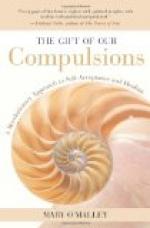“I cannot,” said Mary. “Nor I either,” said Clara; “certainly, I see no harm in the words we uttered.”
“True,” responded Mrs. Spaulding, “there was no harm. It was not the words you spoke, but the tone in which they were spoken, that attracted my attention; as if you were glad to be able to point out somebody to whom the reproof could be applied. This failing is a common one, and our Savior may have had it in view, when he said to his followers, on the mount, ’Cast out the beam from thine own eye; and then shalt thou see clearly to cast the mote out of thy brother’s eye.’ My object now, my dear children, is to caution you against a failing, which is almost universal, namely, of seeing distinctly and reproving faults in others, while we appear to be quite unconscious that we ourselves are in the practice of the same or worse defects.
“This blemish develops itself in a variety of ways. The pastor preaches an excellent sermon, wherein is contained some allusion to faults which ought to be corrected. If the people had treasured up in their hearts all his exhortations, they would not have forgotten one which he has often endeavored to impress upon their minds; I mean, the duty of self-communion, self-examination; and when he should have occasion to allude to faults, they would, one and all, ask themselves, ’Am I guilty of this wrong? Let me see; and if I am, let me correct it in future.’ Instead of this, how frequently do we hear such expressions as these: ’The remarks in the sermon this morning applied to Mr. A or Mrs. B, very well, and it is to be hoped they will see it, and profit by it.’ Now if such individuals, instead of trying to find others who are guilty of the wrong indicated, would only carefully look within themselves, ten chances to one they would find that they deserved the rebuke as much as any one else.
“Children insensibly contract the same bad habit of looking very sharply for the faults of others, never once thinking that they may have some, which, if not precisely the same, may be even worse. Thus if the pastor, superintendent, or one of the teachers, addresses the Sabbath school, calling the attention of the scholars generally to any fault, each scholar ought to ask himself at once, ‘Is it I?’ and not look round complacently and ask, ‘Who can it be?’ or say, ’I guess the speaker means to refer to Lilly A or Edgar B.’”
“Well,” said Mary, “I must confess that I have done this often, and without being conscious of any wrong feelings; some how or other, I did not consider that the reproof belonged to me; or ever ask myself if I had committed the fault which was exposed.”




